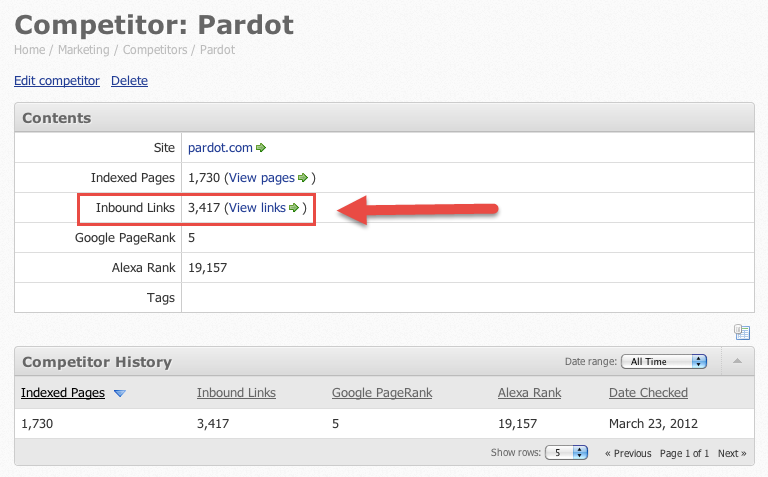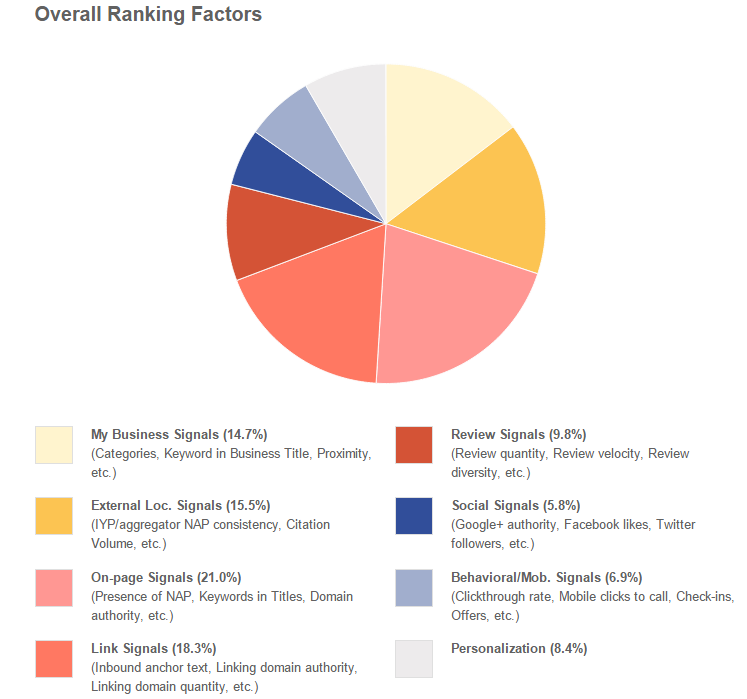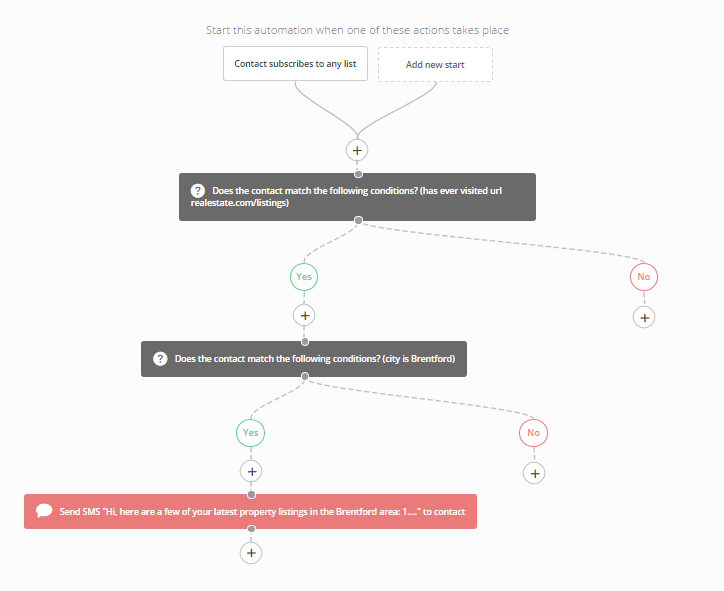5 Ways Real Estate Agencies Can Use Marketing Automation
Marketing Automation Insider is supported by readers like yourself. We may earn an affiliate commission when you purchase through our links. Of course, this won't increase the cost of your subscription.

If you’re a real estate business that’s looking to build its presence on the web — but you don’t exactly know how to do so — then look no further than marketing automation.
Marketing automation tools will add a whole host of features to your marketing arsenal that no real estate business should have to do without. In this post, we’ll take a look at five of the top ways automation will benefit your real estate brand.
1. Elevate Local SEO Rankings
Are you tired of repeatedly Googling your target keywords, without ever seeing your website appear in the top 10 results? Have no fear: marketing automation is here to help.
Local SEO is a very difficult strategy to nail; several of the optimization techniques that take play big roles in global SEO aren’t nearly so relevant in local SEO, and vice versa. Here’s a look at the results of an analysis of local SEO ranking factors that Moz did.
Automation software will help you to better manage your local SEO campaign by doing things like:
- Increasing social signals using techniques like content segmentation and automated social media profiles
- Utilizing rich snippets to boost the relevancy of your content (like user-submitted property reviews)
- Alerting you of ways to target local keywords in your published content (e.g. interlinking using specific keywords as anchor text or mixing in semantic terms & phrases)
- Monitoring ranking fluctuations as you implement new SEO strategies
Pardot, for instance, will list the keywords you’re targeting according to competition, average AdWords cost per click, etc., while providing you with comprehensive overviews of your historical ranking data. Most automation software come with similar tools.
2. Send Automated Texts to Leads
Once you’ve acquired phone number details from leads, you can create personalized automation workflows that will send tailored text messages to your leads, hands-free.
Here’s an example of a simple messaging automation. A lead is sent a personalized text message that notifies them of your latest real estate listings in their specific area.
Let’s explain this automation in a little more detail. Say that you’re a London-based real estate agency.
A visitor has just signed up at your website, providing you with their contact information. The new lead is then committed to the automation system, where the lead’s activity on your site (the pages they visit, the listings they browse, the locations they view) is tracked and measured.
You discover that for the first few days since the initial interaction the lead browses properties around the Brentford area, a west London town. After 2-3 days, though, the lead’s activity dies down and he/she doesn’t visit your website again.
One way automation can help you revive this failed engagement is by sending the lead an SMS containing information about your newest listings. Moreover, because the system has been tracking the lead’s activity from day one, the text can be personalized to show listings specific to the Brentford area, which makes it much more likely that the lead will interact the message.
3. Create Sales Materials
Marketing automation software will make it easy for you to create and organized sales materials. You can create content like:
- Lead magnets (e.g. property brochures, neighborhood reports, etc.)
- Blogs to help you stay relevant in the industry and on top of search engines
- State-of-the-industry white papaers
- Social media posts
- E-brochures and virtual tours for your newest properties
Furthermore, you’ll also be able to track the performance analytics of these various types of sales materials in detail. This allows you to see exactly what sort of content resonates best with your audience and what format converts the best.
4. Connect ROI with Digital Marketing Strategy
Often times in small businesses (this isn’t a problem that hits real estate agencies alone), there’s a big disconnect between marketing strategy and ROI. With most basic analytics platforms, the most you’re able to do is track page visits, form fills, conversions, etc. — you’re not able to actually see how each of these metrics translate into revenue.
In other words, you only see the big picture, and you miss out on most of the little details that show you where your agency has room for improvement.
For instance: 1000 visitors come to your site via a Google Adwords ad. The total spend was $500. Here are the details:
- The overall conversion rate was 5% = 50 conversions.
- Historically, the average value of a new lead to your business is $5.
- The campaign made 50 leads x $5 = $250 in revenue by your calculations.
- The campaign is therefore a -$250 loss ($250 revenue – $500 spend) by your calculations.
But there’s a problem here; you’ve assumed that the value of these extra 50 leads is consistent with the values of leads that have come from other far less targeted marketing strategy.
When you take a closer look, you find that the ultra-targeted nature of the Adwords campaign actually resulted in a tripling of lead value. So each of those 50 leads was actually worth $15 vs. your historic average of $5.
The revenue gained from the campaign, then, is 50 leads x $15 = $750: a $250 profit, not a -$250 loss.
It will be extremely difficult for you to see data like this if you don’t have an automation system to track each lead in your system.
5. Competitor Monitoring
Another highly useful automation feature is competitor monitoring. Some automation tool vendors allow you to monitor your competitors closely, so you’re able to see both how they are implementing their marketing strategy and how you can potentially use that knowledge to your advantage.
I discussed previously about how Pardot’s automation tool allows you to monitor how well your content is performing in the SERPs. The same product also allows you to keep track of your competitors’ search engine rankings. Here’s a screenshot of the Pardot interface below:
So when a competitor’s rankings increase relative to yours, you’ll know exactly who is doing what. You can monitor the number of each competitor’s inbound links, and even view these links to see how they’re implementing a backlinking strategy.

6. Test Listing Styles for Higher Conversions
Another popular feature of marketing automation tools is their ability to integrate with A/B and multivariate testing software.
Say for instance that you want to test the effect of increasing the size and noticeability of property images on your listing pages.
In a tool like Visual Website Optimizer or Unbounce, you’ll be able to setup a new version of your listing pages with larger images. The software will then automatically split incoming traffic of that page equally to each version and will compare the resultant analytics. The winner of the test will tell you whether enlarging the images does in fact increase conversions.
Most automation tools will readily integrate with VWO, Unbounce, and almost any another major conversion testing tool. A few select ones even have split testing built-in.
How Do You See Marketing Automation Improving Your Real Estate Business?
Marketing automation holds a very important place in the real estate world.
Automation has you covered, whether you’re looking to give your search engine rankings a boost, kickstart a mobile marketing campaign, or A/B test your way to higher conversion rates.
Which of these marketing automation features do you think will have the most impact on your real estate business? Let us know in the comments below.
If you’re ready to start growing your real estate agency with marketing automation, then start by choosing the tool that fits your business here.






